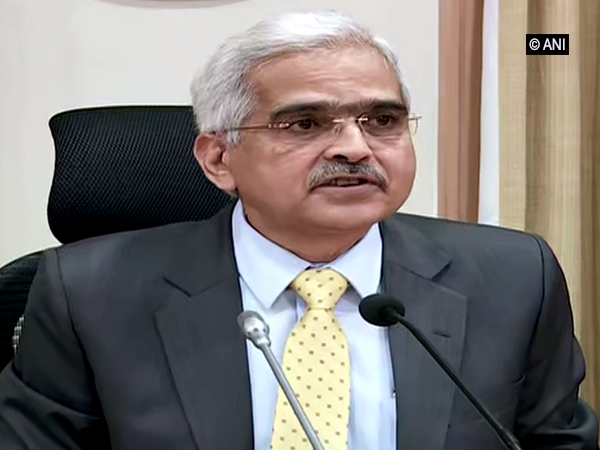Proper interpretation of data necessary for more informed decision making: RBI Governor

- Country:
- India
RBI Governor Shaktikanta Das on Wednesday emphasised the need for proper interpretation of data to facilitate more informed decision-making as it will bring clarity in communication from decision-makers as well as the formation of rational expectations from market participants.
''The importance of statistics in public policy is well understood. In the face of high uncertainty brought on by the COVID-19 pandemic, the discipline of statistics found itself in the greater spotlight. This unprecedented global phenomenon has tested human endeavour in multiple facets and magnitude,'' he said.
Speaking at the RBI's annual 'Statistics Day Conference', Das mentioned that lockdowns in various countries, including India, posed severe challenges to the compilation and availability of data relating to the spread of the pandemic, and its impact on various economies and the world urgently needed solutions to a problem it had never seen before.
Recalling India's experience in data gathering, he said the Ministry of Statistics and Programme Implementation was compelled to publish imputed figures for Consumer Price Index (CPI) for two consecutive months during the first wave of the pandemic in 2020 due to immense difficulty in collection of prices for many items.
He said statistical innovations arising out of the pandemic disruption will have long-lasting benefits and added that the upheaval also posed challenges to statistical agencies to build more public trust in the resulting statistics.
While new data sources open up opportunities for official statistics, he said it also raises issues for the discipline.
''... statistics should focus on laying down the pathway towards proper interpretation in the present world of data abundance. This would facilitate more informed decision making, clarity in communication from decision-makers and formation of rational expectations from market participants,'' Das said.
Observing that the development of proper data quality framework and ensuring data privacy and data security has assumed top priority, Das said this was a central theme for the recently held International Association for Official Statistics Conference in April 2022.
Central banks on their part are both producers and users of statistics for policy actions as well as for assessing the outcomes of their actions. They also need to establish stronger communication of their policies and actions in such turbulent times, he noted.
Thus, central banks too had to cope with all these challenges by focussing on alternative indicators and data sources for monitoring the effects of the pandemic in all its dimensions.
Talking about RBI, Das said it has refocussed its statistical endeavours during the pandemic to ensure the continuity of its mission.
''RBI's past efforts in streamlining of data flow, investment in technology and continuous engagement with regulated entities paid dividends. In addition to some shift in modes of survey data collection, more consistency checks were put in place and sample follow-up revisits were introduced to ensure the sanctity of data,'' he said.
Innovative solutions were found in terms of channels of data collection, validations and dissemination for policy inputs as well as for meeting various international reporting commitments, he said.
''Our endeavour has been to follow global standards and best practices, some of which are still evolving. In parallel to these developments, more indices, sub-indices and other statistics have also come to the forefront as countries strive to achieve a higher standard of living, and attempt to monitor their progress across multiple dimensions,'' he said.
Various forms of human development indices, happiness indices and inequality indices have been proposed in the literature and are now compiled by various national and international agencies, he said.
Given its vastness and geographical diversity, he said India requires regional dimensions of national indicators.
''We should aim at enhanced granularity, regularity and better validation. In the Reserve Bank, we treat information as a 'public good'. We envision to keep calibrating our information management systems to the needs and expectations of various stakeholders,'' he said.
RBI should also tap alternate data sources, and consider ways and means of fitting them into the existing analytical frameworks, he added.
(This story has not been edited by Devdiscourse staff and is auto-generated from a syndicated feed.)










